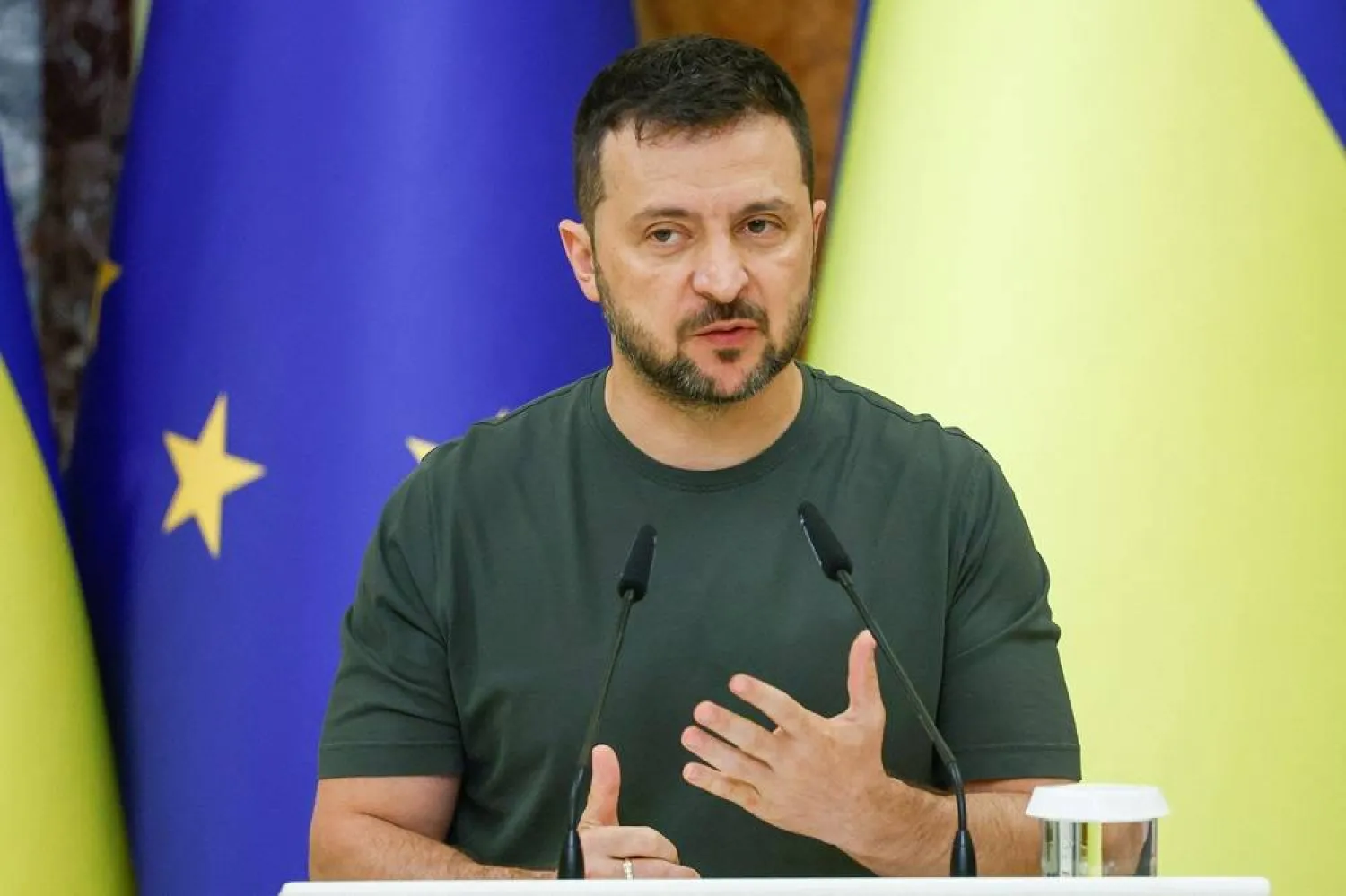President Volodymyr Zelenskiy said he hoped to meet Republican presidential candidate Donald Trump next week when he travels to the United States to present Ukraine's "victory plan" in the war against Russia.
Zelenskiy will attend sessions of the UN Security Council and General Assembly and also plans to meet US President Joe Biden and Vice President Kamala Harris in separate meetings on Sept. 26.
The Ukrainian leader said he also hoped to meet Trump.
"We will most likely have a meeting, I think, on September 26-27," Zelenskiy told media late on Friday, without providing further details.
Trump faces Democratic Vice President Kamala Harris in the Nov. 5 US election.
Zelenskiy said in August he wanted to present his plan to Biden, Harris, and Trump. While Trump and Zelenskiy talked over the phone in July, they have not met in person since Trump's 2017-2021 term.
Zelenskiy described the plan as a blueprint for how to force Russia to end its war diplomatically and said it depended on quick decisions by key allies from October to December this year.
At a critical juncture in the war, Zelenskiy is seeking to strengthen Ukraine with more weapons, and military, economic, and diplomatic support from the United States, Kyiv's key ally. He is expected to push Washington to lift restrictions on long-range missile strikes inside Russia.
Russian forces continue to advance slowly but steadily in eastern Ukraine despite Kyiv's troops launching a surprise incursion last month into Russia's Kursk region. Zelenskiy has repeatedly said there is no alternative for a "just peace" and ruled out freezing the war, saying it would simply postpone Russian aggression.









